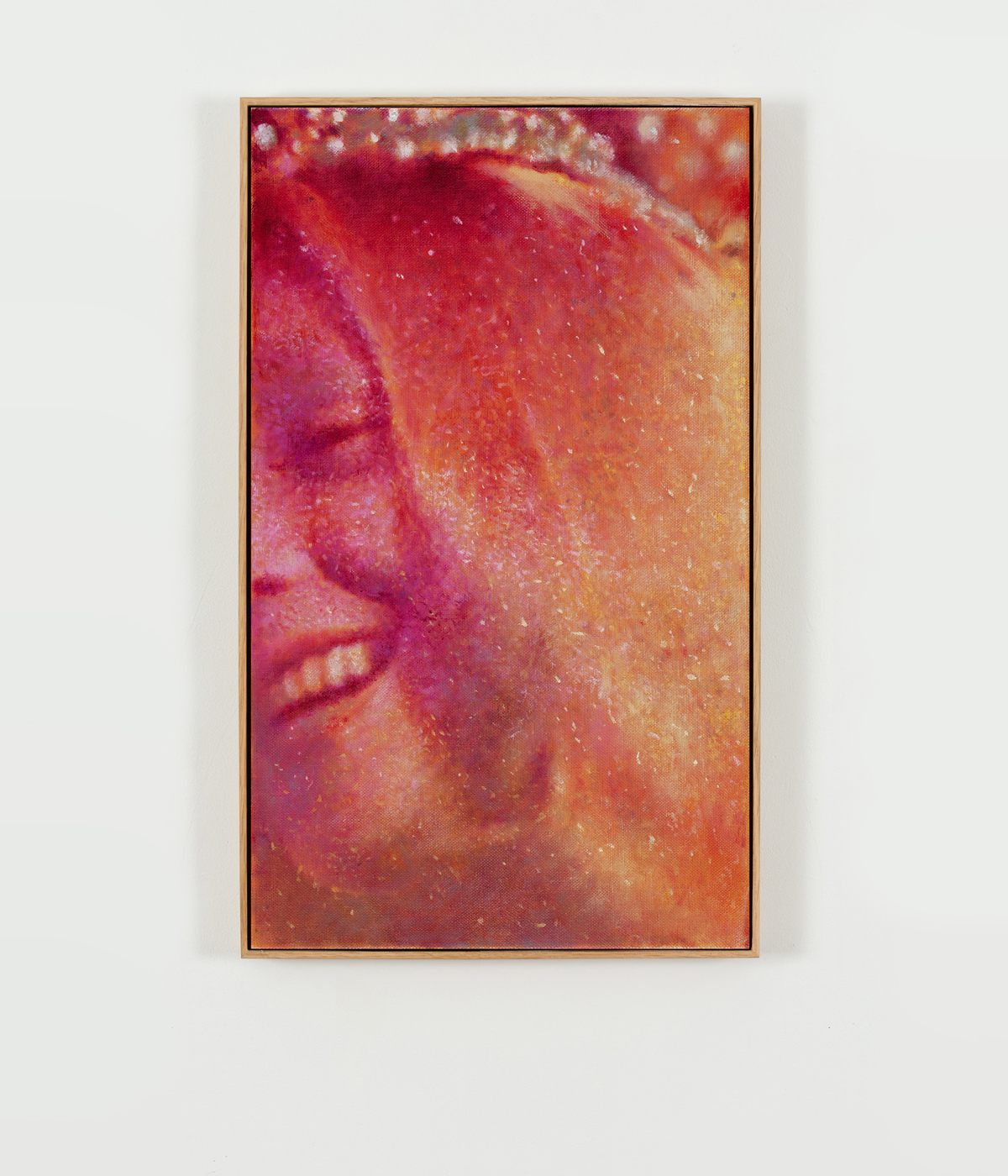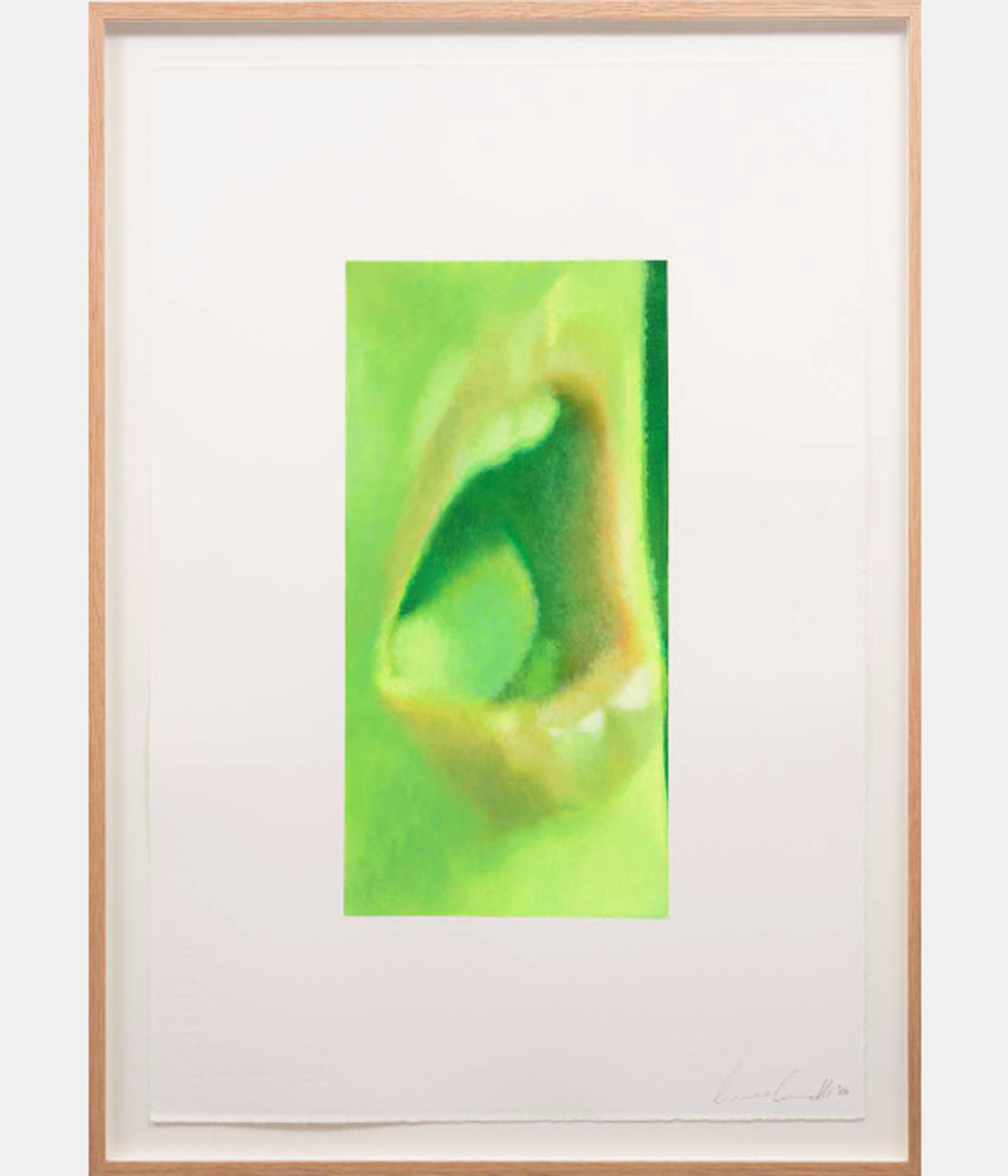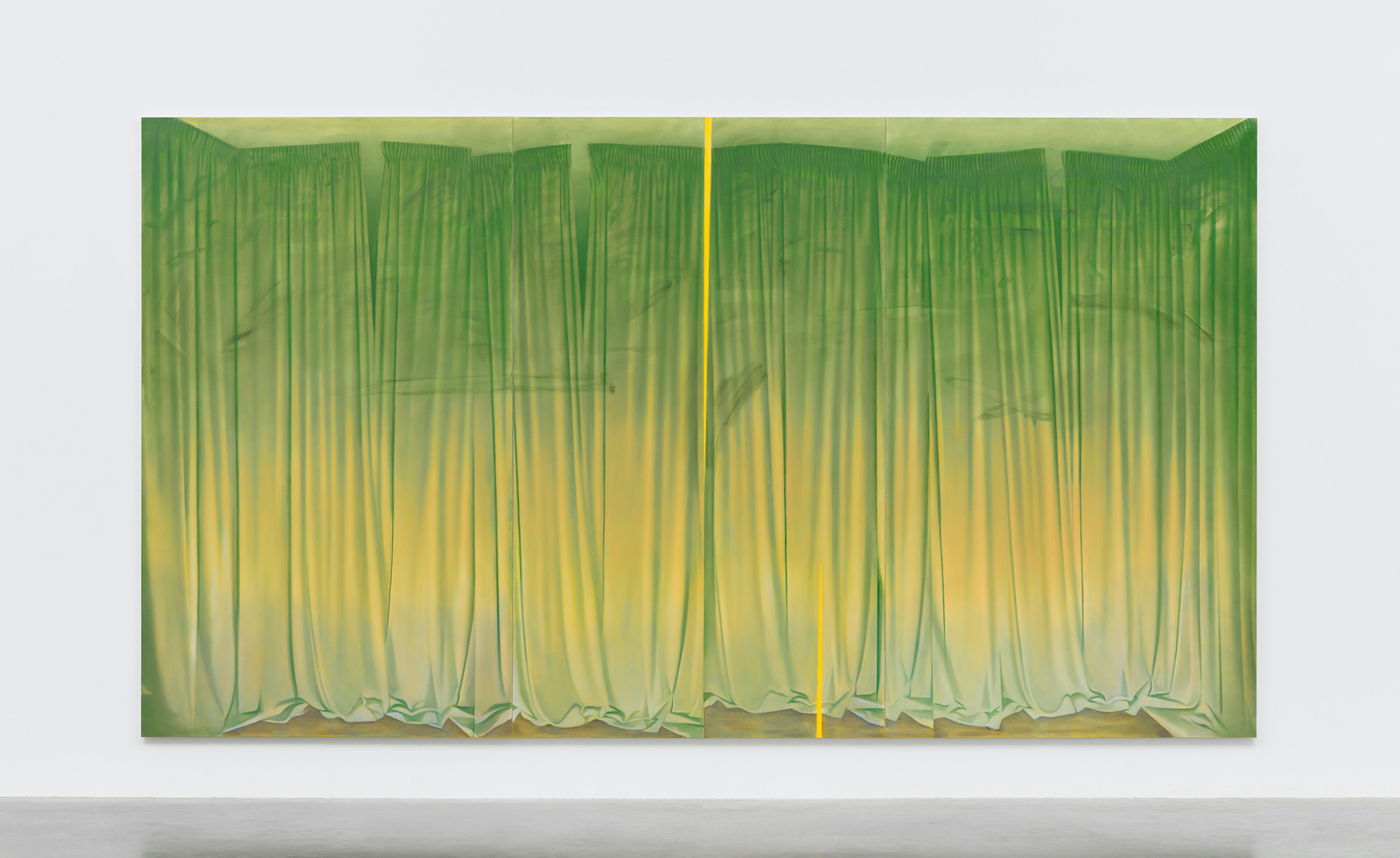
‘Curtains are endlessly fascinating for me. They represent the entire spectrum of cultures,’ says London-born artist Louise Giovanelli. ‘They can be low culture, so to speak, at working men's clubs, and bars, but then they go all the way up to very regal, and can be monumental, theatrical and cinematic. I enjoy that.’ It is a performative element which runs throughout Giovanelli’s work, which captures that moment of anticipation before the curtains open. Her show opening this month at The Hepworth Wakefield unites her curtains work with new, large-scale oil paintings.
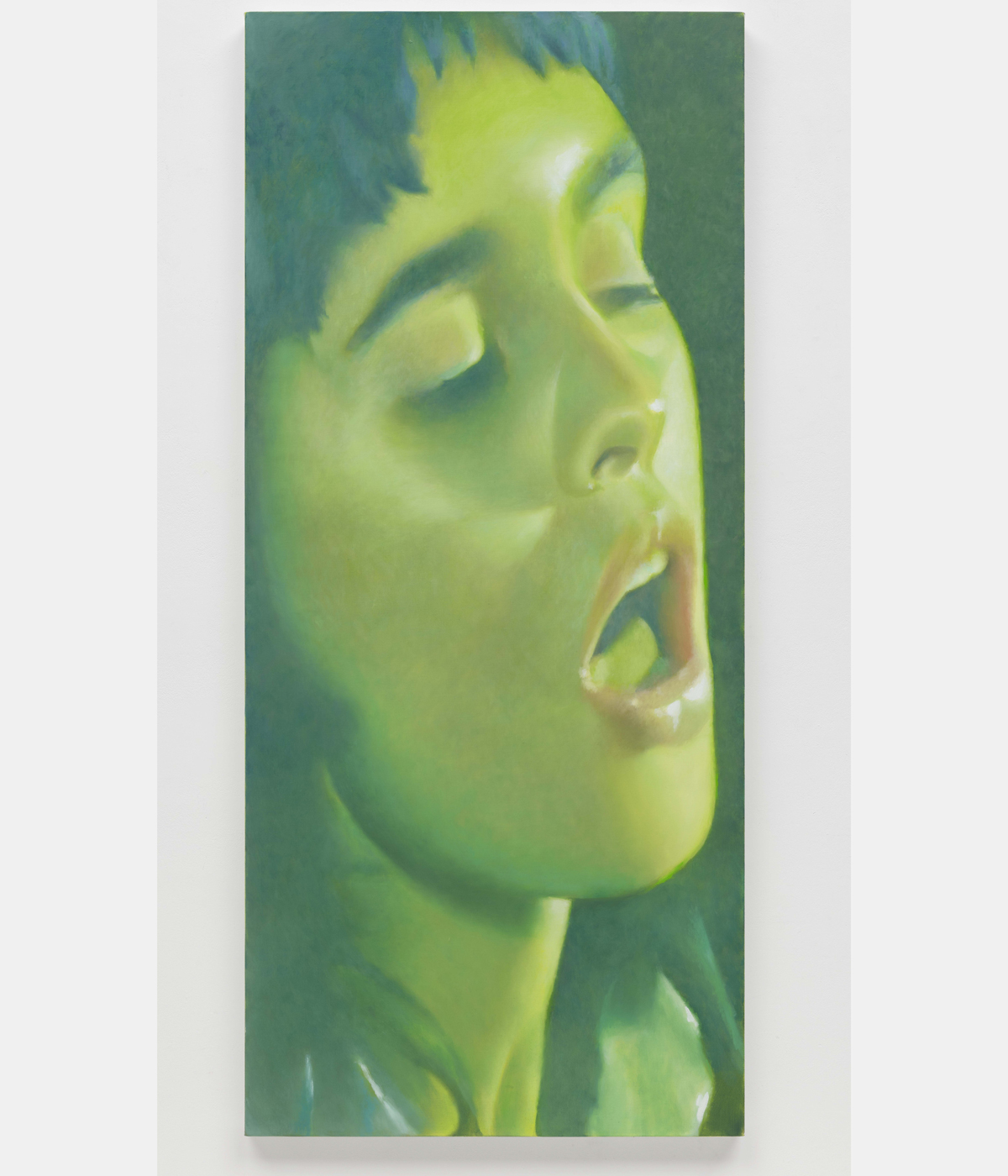
After moving to Manchester to study at the Manchester School of Art in 2015, Giovanelli chose to stay in the city, where she remains today, choosing to commit to painting and moving from acrylic to oil. In this, her largest exhibition to date, Giovanelli explores the idea of the spectacle, a concept which has intrigued her throughout her career, taking shape in works which allude to an eclectic array of references from classical sculpture to contemporary film and photography.
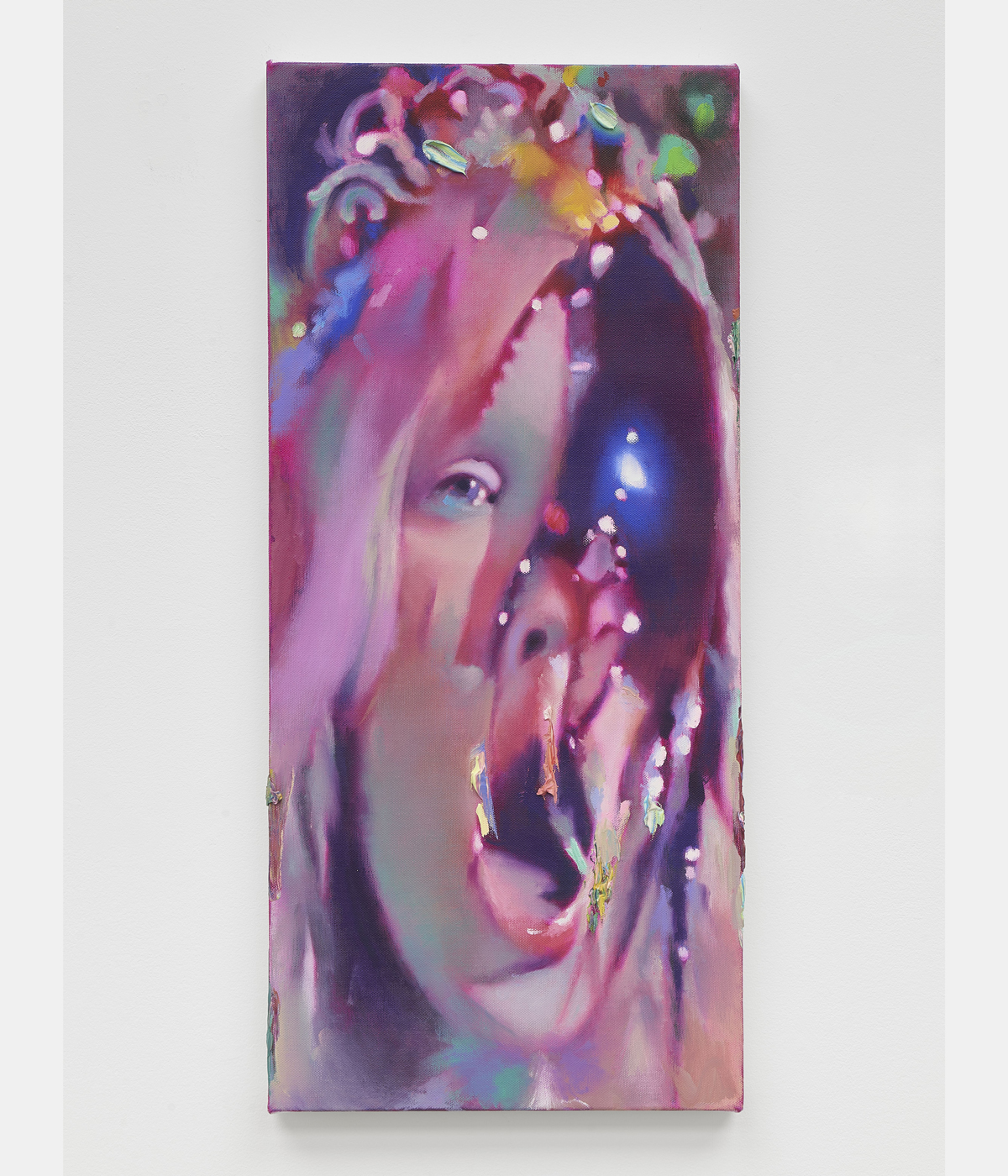
‘I've had curtains as quite an anchoring device in a lot of my exhibitions. This show will have the most curtains in it so far, but I tend to always have at least one very large curtain, because I feel like it has a gravitational, almost architectural, weight, and a hold on the show. It quite literally sets the scene, because it's got such rich connotations. I think I enjoy this tension between that expectation that the painting is supposed to reveal something about the artist, but I'm also trying to deny access to these realms, like in the curtains for example, in order to produce this kind of tension. We see a lot, but we don't see anything at the same time. You don’t know whether the action has happened or is about to happen, but that's what I think good art is about - leaving some questions unanswered. It's very boring when everything is shown, or explained to you. It then becomes an illustration, rather than a painting.’
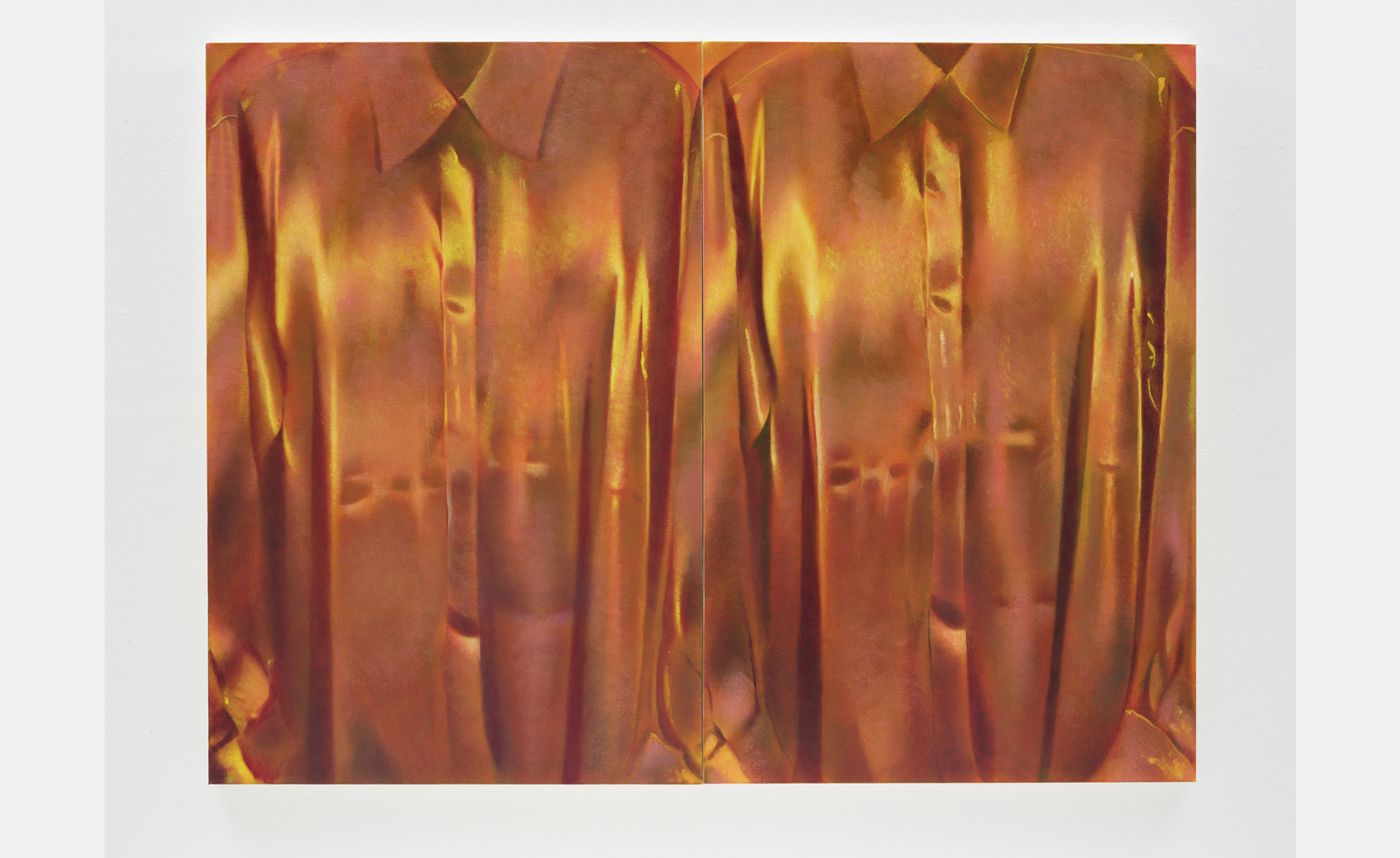
This atmosphere of suspense finds its emotional outlet in the paintings themselves, which reflect states of high emotion, from ecstasy to turmoil. Frozen moments - such as in Altar (2022), which depicts an anxious moment in horror film Carrie - are bathed in a lurid, almost sacred light, lending them an uncanny effect of hyper-reality. Appearing as if saturated, the sense of artificiality adds an almost macabre tension to the aesthetic beauty of the painting.
‘We have two paintings in the show from Carrie, showing that heightened state of emotional anticipation - she's happy, but there's a slight grimace to her face. You're not quite sure how to read that expression. [That feeling] connects with the curtains, and the idea of contemporary iconography. That’s another key theme and what I've been really thinking about the last few years, the idea of connecting religious ideas around spectacle and devotion and worship, to contemporary moments. Pop stars, film stars, totemic moments of glitz and glamour are contemporary modes of worship.’
Louise Giovanelli: A Song of Ascents is at The Hepworth Wakefield from 23 November 2024 - 27 April 2025
